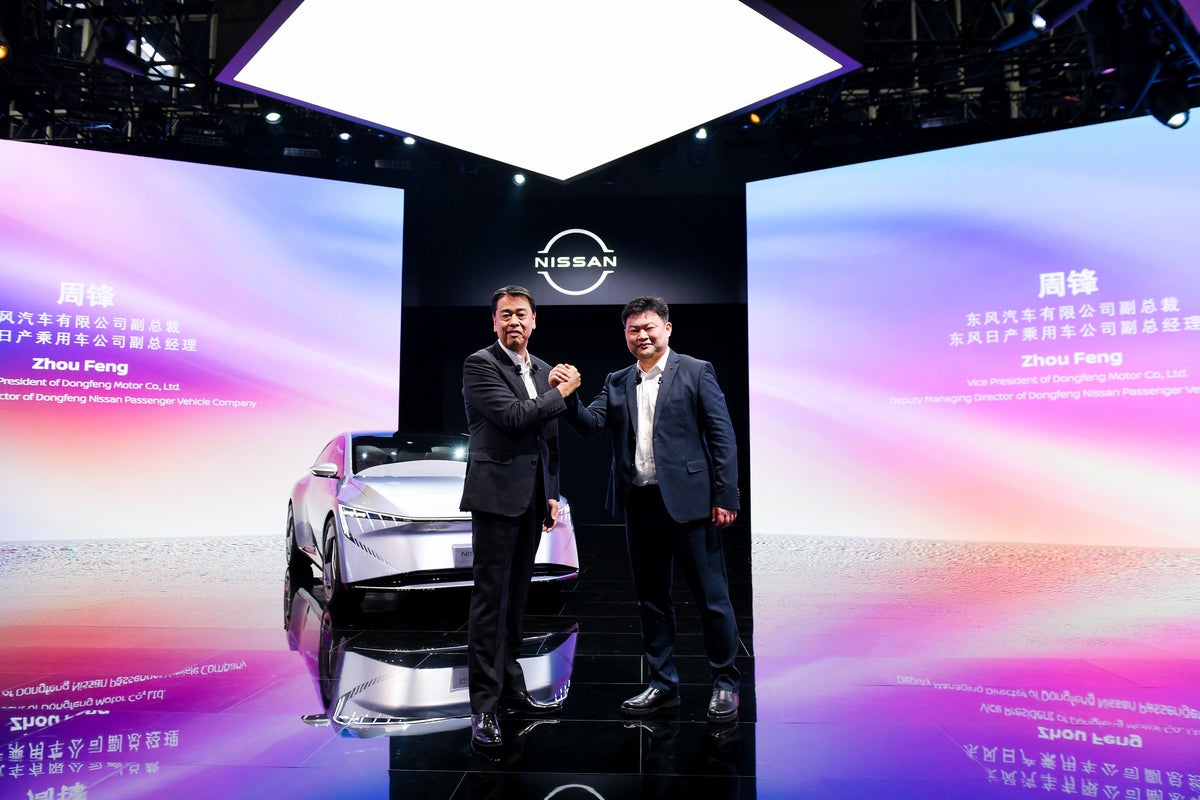Intelligence has been a huge trend at Auto China 2024. Read ahead to discover how Japanese car brands are joining hands with China technology companies, and catch up on Tesla‘s progress as it gets ready to form China’s “Intelligence Trio”.
- On May 1, Huawei announced that in April it delivered 13,391 units Wenjie M9, ranking first among luxury models of more than 500,000 yuan. This means that for the first time, Chinese local brand cars have defeated German rivals such as Mercedes-Benz, BMW, and Audi in the luxury car market, and established themselves in the luxury car market. Although German luxury brands have maintained their growth momentum in the past few years, they are already facing full-scale competition from Chinese brands in China, and how to keep up with the pace of the Chinese market in terms of electrification and intelligence will be a huge challenge in the future.
- On April 28, Chinese Premier Li Qiang visited the exhibition area of many Chinese and foreign automobile brands. It is worth noting that on the afternoon of the auto show research, Li Qiang also met with Elon Musk, CEO of Tesla Inc. in the United States. Li Qiang stressed that it is necessary to treat domestic and foreign-funded enterprises equally, promote Chinese and foreign car companies to carry out more extensive exchanges and cooperation in capital, technology, management, talent and other aspects, and share the opportunities of the Chinese market. In the context of geopolitical wrestling between China and the United States, Beijing still expressed an attitude of opening up and cooperating in the new energy vehicle market, which is a positive signal for the international auto giants that are currently at a disadvantage, and is also conducive to further technical exchanges and cooperation between Chinese and foreign auto companies.
Japanese car brands cooperate with China to further auto intelligence
- Japanese car brands join hands with Chinese tech companies
- Keeping up with electrification to be the key for Japanese manufacturers to survive in China
The wave of intelligence that dominated this year’s Auto China 2024 is re-refreshing consumer perception, and the traditionally conservative Japanese car brands have finally begun to cooperate with Chinese technology companies in the field of intelligence.
At the show, Nissan Motor and Baidu signed an MoU to carry out a feasibility study on strategic cooperation in the field of AI and intelligent vehicles, following Honda’s earlier disclosure of its cooperation with Chinese suppliers such as Huawei and CATL before the show. Further, Toyota officially announced its cooperation with Tencent, combining Tencent’s AI model, cloud, digital ecology.
Japanese automakers’ market share in China has fallen from 23% in 2019 to 17% last year, and this decline is expected to continue this year. Keeping up with the trend of electrification and intelligence in the Chinese market has become the key for Japanese manufacturers to survive in China in the future.
John Zeng, Director of Asian Forecasting
Tesla getting ready to disrupt China’s major intelligence duo once local restrictions removed
- Tesla passes China’s security requirements
- Musk meets senior officials to promote FSD in China as Tesla gears up to compete
Given 2023’s penetration rate of L2+ ADS in China exceeded 35%, it’s no surprise that intelligent driving is an important theme at Auto China 2024.
Key movements include Huawei unveiling the Qiankun 3.0 intelligent driving system; Xiaomi founder, Lei Jun, calling on BYD to build a unified new energy vehicle ecosystem, which will involve industry standards and promote the coordinated development of the industrial chain; and Elon Musk visiting China on the sidelines of the auto show and meeting with senior officials to promote the implementation of FSD in China.
At present, Tesla has passed China’s data security requirements, and local restrictions will be lifted soon. As a result, the intelligent driving system led by Huawei, Xiaomi Ecology, and Tesla FSD has formed a tripartite balance in the intelligent driving stage.
The implementation of Tesla’s FSD will once again exert a catfish effect in China’s autonomous driving market, and will further accelerate the process of China’s new energy vehicles to intelligent competition.
Lancy Zhang, China NEV and Powertrain Analyst
As part of GlobalData’s coverage of Auto China 2024, we are offering a complimentary edition of our China Automotive Monthly Market Update report. This report provides up-to-date analysis of current demand and assessments of OEM strengths and weakness in China, helping you to understand and track the latest market changes.
Please click here to login or register to download the report.
This article was first published on GlobalData’s dedicated research platform, the Automotive Intelligence Center.







